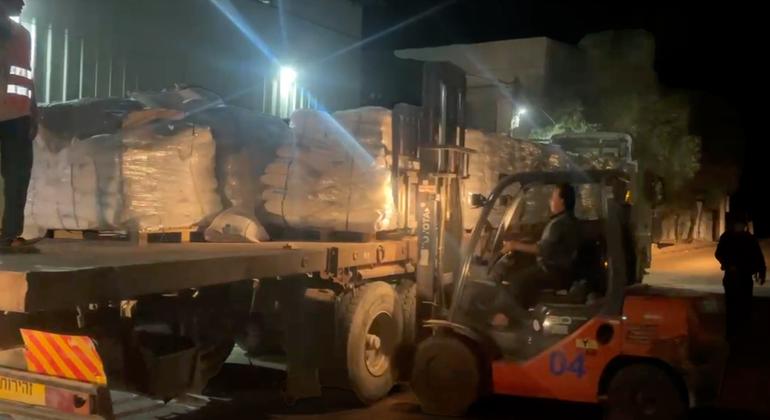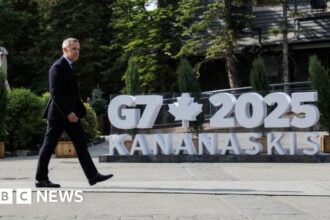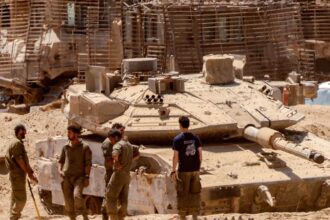In the shadow of collapsed infrastructure and devastated communities, Gaza’s humanitarian crisis has reached a new and dangerous inflection point. Widespread looting of food aid convoys has thrown relief operations into disarray, with United Nations officials warning that the systematic theft threatens to completely derail the already precarious aid delivery system serving millions of desperate Palestinians.
“What we’re witnessing isn’t simply opportunistic theft—it’s the collapse of civil order in real-time,” said Matthias Schmale, UN Humanitarian Coordinator for Gaza, during an emergency briefing yesterday. “When armed men can simply commandeer entire food convoys while families starve, we’ve entered a terrifying new phase of this crisis.”
The World Food Programme reports that over 60 percent of aid trucks entering Gaza in the past two weeks have been partially or completely looted before reaching distribution centers. This represents a dramatic increase from the 25 percent reported just one month ago, painting a grim picture of deteriorating conditions on the ground.
According to field reports obtained by our team at CO24, the pattern of looting has evolved from scattered incidents into what appears to be organized operations. Armed groups have established unofficial checkpoints along key supply routes, particularly in northern Gaza and around Khan Younis, where they systematically target convoys carrying flour, cooking oil, and other staples.
“These aren’t just random acts of desperation,” explained Dr. Sarah Levin, conflict zone analyst who recently returned from the region. “We’re seeing coordination and planning in how these convoys are intercepted. The food is then sold at exorbitant prices in informal markets, creating a predatory economy built on human suffering.”
The ramifications extend far beyond the immediate loss of supplies. Several international aid organizations have temporarily suspended operations, citing safety concerns for their personnel. Médecins Sans Frontières confirmed two of their vehicles were seized at gunpoint last week while transporting medical supplies to a field hospital in Rafah.
The UN Security Council convened an emergency session to address the crisis, with Canada’s representative calling for immediate implementation of protected humanitarian corridors. “Without secure routes for aid delivery, we’re simply watching a population starve in slow motion,” the Canadian delegate stated during proceedings.
For everyday Gazans, the consequences are immediate and devastating. Fatima al-Najjar, a mother of four interviewed via satellite phone from Deir al-Balah, described the impossible choices families now face: “The markets have food, but at ten times the normal price. Do I buy medicine for my sick child or bread for the others? This is our daily question.”
The World Health Organization warns that acute malnutrition rates have tripled since January, with children under five particularly vulnerable. Hospital admissions for malnutrition-related conditions have increased by 218% according to their latest assessment, representing what one official called “entirely preventable suffering.”
International diplomatic efforts to address the looting crisis have intensified, with neighboring Egypt proposing a joint security mechanism to protect aid routes. Meanwhile, the European Union has pledged additional funding for air-dropped supplies to bypass ground routes, though experts question whether such measures can meet the scale of need.
As Gaza enters its eighth month of conflict, the aid looting crisis represents more than just another humanitarian challenge—it signals the fundamental breakdown of governance and security necessary for any meaningful relief effort. Without immediate intervention, UN officials warn the situation will continue its downward spiral.
What remains to be answered is whether the international community can find innovative solutions to this evolving crisis, or if Gaza’s population will be abandoned to a catastrophe that grows more dire with each passing day?

























